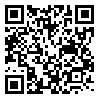BibTeX | RIS | EndNote | Medlars | ProCite | Reference Manager | RefWorks
Send citation to:
URL: http://ijpcp.iums.ac.ir/article-1-2632-en.html
2- PhD of Psychology, Assistant Professor, Department of Psychology, Faculty of Educational Sciences, Garmsar Branch, Islamic Azad University, Garmsar, Iran. ,
3- Child and Adolescent Psychiatrist, Assistant Professor, Department of Clinical Psychology, University of Social Welfare and Rehabilitation Sciences, Tehran, Iran.
Objectives This study was conducted to compare the executive cognitive functions of the brain in two groups of Attention Deficit Hyperactivity Disorder (ADHD) children with and without anxiety.
Methods In this cross-sectional comparative study,15 children with ADHD and 15 children with ADHD and anxiety were compared in terms of executive functions. The study population was chosen from patients in three region of Tehran city (one, three and nine regions) through clinical interviews and questionnaires (Kiddie-Schedule for Affective Disorders and Schizophrenia (K-SADS), ADHD Rating Scale, Kaners, Revised Children's Manifest Anxiety Scale (RCMAS). The executive functions were evaluated using the Tower of London Test (TOL) and Wisconsin Card Sorting Test (WSCT).
Results The results showed a significant difference between ADHD children with and without comorbid anxiety (P=0.05) in terms of executive cognitive functions of the brain (problem-solving and decision making, impulsivity, and abstract thinking).
Conclusion In this study, it was found that children with ADHD and anxiety are better in abstract thinking and flexibility and impulse control (they had fewer errors in WSCT) because anxiety can control risk-taking behaviors and impulsivity, but they have more deficits in decision making.
Received: 2015/10/27 | Accepted: 2016/06/13 | Published: 2017/10/1
| Rights and permissions | |
 |
This work is licensed under a Creative Commons Attribution-NonCommercial 4.0 International License. |





